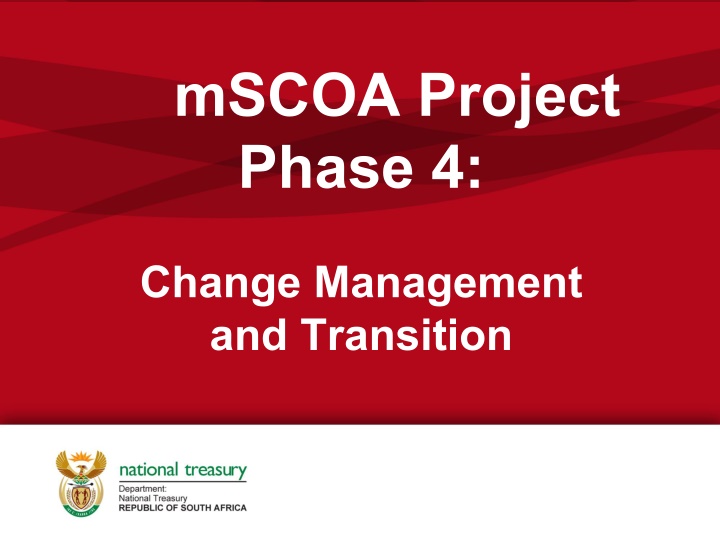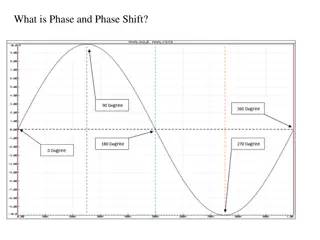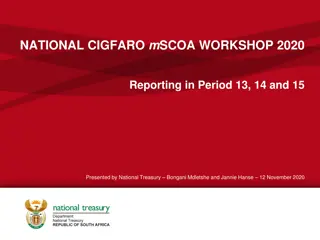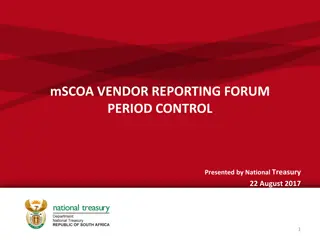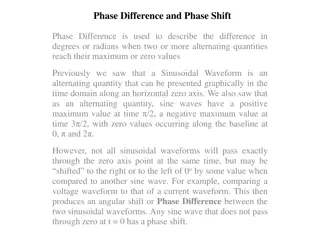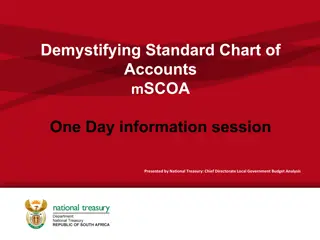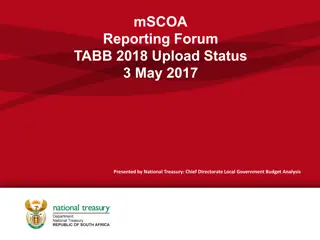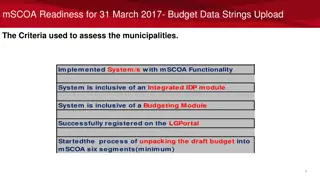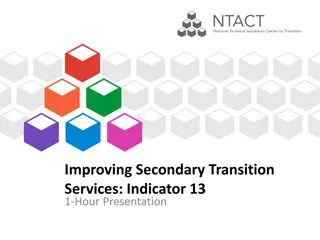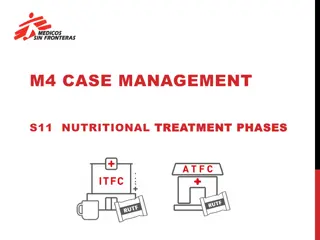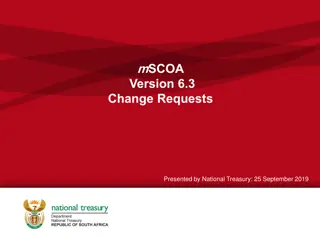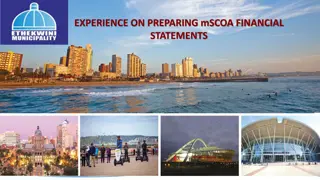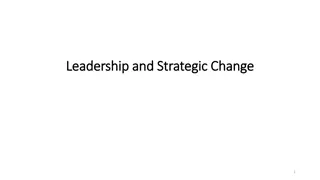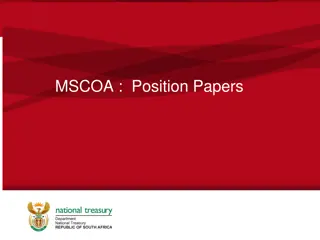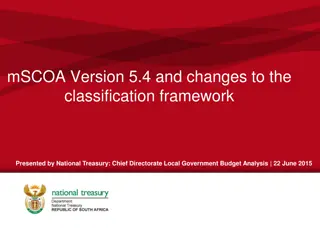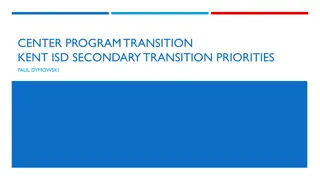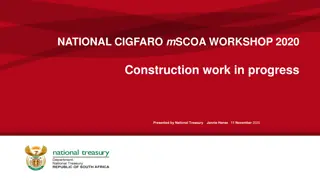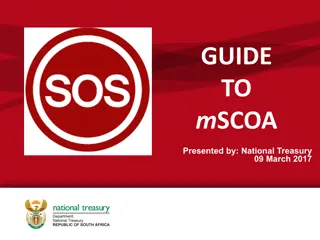mSCOA Project Phase 4: Change Management and Transition Strategy
This document outlines the key components of the Change Management and Transition Strategy for mSCOA Project Phase 4. It includes details on project governance, management, communication planning, engagement with stakeholders, risk management, and audit preparation. The strategy aims to embed change effectively within provincial treasuries and non-pilot municipalities to ensure a smooth transition.
Download Presentation

Please find below an Image/Link to download the presentation.
The content on the website is provided AS IS for your information and personal use only. It may not be sold, licensed, or shared on other websites without obtaining consent from the author.If you encounter any issues during the download, it is possible that the publisher has removed the file from their server.
You are allowed to download the files provided on this website for personal or commercial use, subject to the condition that they are used lawfully. All files are the property of their respective owners.
The content on the website is provided AS IS for your information and personal use only. It may not be sold, licensed, or shared on other websites without obtaining consent from the author.
E N D
Presentation Transcript
mSCOA Project Phase 4: Change Management and Transition
CHANGE AND TRANSITION: Embedding change in your head, heart and hand https://encrypted-tbn0.gstatic.com/images?q=tbn:ANd9GcQlWjM1TChGE5vX_RpP6vF-2TfxDg_sunj6NgAMXZlfMT2LWkmOZQ
mSCOA Project Phase 4 Change Management and Transition Strategy The following graph represents the key components of the Change Management and Transition Strategy, which directly involves provincial treasuries and non-pilot municipalities: http://images.flatworldknowledge.com/portolesediasleadsup/portolesediasleadsup-fig12_006.jpg 3 3
mSCOA PROJECT - PROVINCE 1. PROJECT GOVERNANCE 2. PROJECT MANAGEMENT 3. PROJECT, ENGAGEMENT & COMMUNICATION PLANNING 4. COMMUNICATION FORUMS & AWARENESS TRAINING 5. ENGAGEMENTS WITH VARIOUS PROVINCIAL STAKEHOLDER GROUPS 6. RISK REGISTER(S) & ISSUE LOGS 7. AUDIT PREPARATION 7. LEARNING, KNOWLEDGE & CHANGE MANAGEMENT 5 5
mSCOA PROJECT - MUNICIPALITIES 1. PROJECT GOVERNANCE (Steering Committee) 2. PROJECT MANAGEMENT (Project Manager, team and plan) 3. COMMUNICATION PLANNING & ROLL OUT (Internal) 4. COMMUNICATION FORUMS, USER GROUPS & AWARENESS TRAINING 5. RISK REGISTER(S) & ISSUE LOGS (Project Documentation) 6. RE-USEABLE PROJECT SLIDES AND TEMPLATES (Terms of Reference (ToR), Charters, Project plans, Issue Logs, Risk Registers) 7. REGULAR SELF-ASSESSMENTS 8. AUDIT PREPARATION 9. LEARNING, KNOWLEDGE & CHANGE MANAGEMENT 6 6
WHERE SHOULD WE BE?
PROVINCIAL TEAMS 1. Set up project structures and administration/ governance 2. Self and municipal assessments 3. Training of internal staff 4. External engagements: NT & Other stakeholders 5. Utilise pilots in province to mobilise non pilots 6. Mobilise municipal projects: ICF/ Information sessions, Provincial circulars, Governance structures, Project teams, Planning & risk registers 7. Support to municipalities: Analyse contracts and SLAs, Development of project documentation, Review of current technology, Assist with comparing of charts, Assist with reviewing business processes and change management plans Compilation of mSCOA compliant budgets, reports, asset registers, AFS, audit preparation Support to municipalities affected by demarcation 8 8
MUNICIPALITIES 1. Set up project structures and administration/ governance 2. Documentation: Plans, charters, risk register, issue log, audit file 3. Internal information communication sessions 4. Training of project team and staff 5. External engagements: PT & Other stakeholders 6. Pre-work from circulated list and circulars - include 9 work streams, review of 15 business processes 6. Submit high level business plan for review to PT, documentation as requested, to LG Database 9 9
